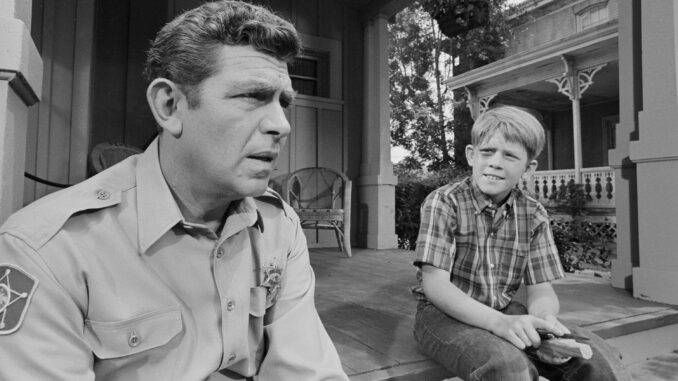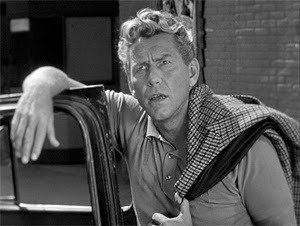
Introduction: A Glimpse Into Andy Griffith’s Struggles
Andy Griffith, beloved for his role as the wise and kind sheriff on The Andy Griffith Show, had a childhood that was anything but easy. Often viewed as the quintessential “All-American” role model, many fans are unaware of the challenges he faced growing up. Bullied, laughed at, and faced with significant emotional hurdles, Andy’s early years were filled with the type of adversity that might surprise those who only know him as the calm, folksy figure on TV.
In this article, we dive deep into Andy Griffith’s difficult childhood, exploring how it shaped the man we grew to adore on screen. Let’s walk through his formative years, the challenges he faced, and how he overcame them to become one of the most enduring television personalities of all time.
The Roots of Andy Griffith’s Struggles
Humble Beginnings in Mount Airy, North Carolina
Andy Griffith was born on June 1, 1926, in Mount Airy, North Carolina, a small town that would later serve as the inspiration for the fictional Mayberry in The Andy Griffith Show. Growing up in the heart of the South during the 1930s and 1940s, Andy faced many of the same hardships that other kids of his generation did – but his personal battles were particularly harsh.
In a time when poverty was widespread, Andy’s family struggled to make ends meet. His father, Carl Griffith, worked as a coal miner, and his mother, Geneva Griffith, was a homemaker. Their modest means and tough economic realities were compounded by the fact that young Andy often found himself on the receiving end of taunts and ridicule from classmates.

A Childhood Marked by Bullying
Though Andy had a talent for making others laugh, his early years were far from the fun-filled and carefree days one might imagine for a future comedian and actor. Andy was regularly bullied at school, not for anything he did wrong but for simply being different. He was often the target of cruel jokes from classmates, which left deep scars.
The Laughter Wasn’t Always Kind
Unlike the easygoing, witty Andy Griffith we know from The Andy Griffith Show, his childhood was filled with moments of loneliness and emotional pain. Being bullied at school made him an outcast for much of his early life. The laughter he elicited wasn’t always out of kindness; sometimes, it was the laughter of those who sought to bring him down.
Facing the Struggles Head-On: Resilience in the Face of Adversity
Finding an Outlet in Music and Acting
Despite the emotional toll his childhood took, Andy Griffith had an innate ability to connect with people through humor. He found an outlet for his pain in music and acting. Andy’s love for singing, especially gospel music, played a significant role in his emotional healing. Singing was more than just a hobby for Andy—it was a way to cope with his struggles and silence the taunts that followed him throughout his younger years.
The Power of Comedy: Laughing Through the Pain
Comedy, too, became a sanctuary for Andy. He quickly realized that laughter had the power to disarm and even heal. Andy turned his childhood pain into a strength, using humor to diffuse difficult situations. His quick wit and charming personality started to make him a local favorite, and soon his comedic skills would pave the way for a future in entertainment.
The Role of His Family and Faith
Support from His Mother and Father
Through all the bullying and hardships, Andy found solace in his family. His mother, Geneva, was a calming presence, encouraging him to pursue his interests despite the challenges. Andy also grew closer to his father, Carl, who was a disciplinarian but also instilled in him a strong work ethic and moral compass. These early lessons in resilience and the importance of family support played a pivotal role in shaping the man who would one day portray the strong moral figure of Sheriff Andy Taylor.
The Influence of Religion
Religion was also a big part of Andy’s childhood, as it was for many Southern families during that era. Raised in the Methodist faith, Andy was deeply influenced by his church’s teachings. His connection to religion gave him a sense of stability and peace amidst the chaos of his childhood. It was through his faith that he found a sense of purpose and learned to channel his pain into something positive.
Andy’s Journey to Success: Overcoming the Bullies
Leaving Behind the Bullies for Bigger Dreams
After high school, Andy left his small hometown to attend the University of North Carolina at Chapel Hill, where he studied music and drama. Here, he began to find his voice as an actor and comedian. It was during these formative years at university that Andy’s ability to overcome adversity truly began to shine. The same humor that once protected him from bullies now served as a stepping stone to a promising career.
The First Break: Comedy and TV Appearances
In the 1950s, Andy Griffith began making a name for himself as a comedian, performing stand-up routines that showcased his charming Southern wit and storytelling ability. His big break came when he appeared on The Ed Sullivan Show in 1954, gaining national recognition for his humorous monologues. His stand-up routine “What It Was, Was Football” became an instant classic, propelling him into the spotlight.
The Andy Griffith Show: A Symbol of Triumph Over Adversity
The Birth of Sheriff Andy Taylor
In 1960, Andy Griffith was cast as Sheriff Andy Taylor in the hit television series The Andy Griffith Show. The show became an instant success, capturing the hearts of Americans with its gentle humor and wholesome portrayal of small-town life. Ironically, the character of Andy Taylor was a direct contrast to Andy Griffith’s own experiences with bullying and hardship.
As Sheriff Taylor, Andy Griffith portrayed a calm, collected, and kind figure, someone who dealt with problems using wisdom and patience. This role, in many ways, was a reflection of his own personal growth. Despite his difficult childhood, Andy became a symbol of what it meant to rise above adversity and take life’s challenges with a smile.
The Transformation: From Bullied Kid to TV Icon
Through his hard work, resilience, and the support of his loved ones, Andy Griffith transformed himself from a bullied child to a national television star. His story is one of perseverance—showing that even in the face of ridicule and adversity, it’s possible to rise, thrive, and make an indelible mark on the world.
Conclusion: Andy Griffith’s Legacy as a Survivor
Andy Griffith’s difficult childhood, filled with bullying and emotional pain, played a significant role in shaping the man who would go on to become one of the most beloved TV stars in history. His ability to find humor in the face of adversity, supported by his faith and family, allowed him to rise above the challenges he faced as a child. Today, we remember Andy not only for his iconic role as Sheriff Taylor but also as a testament to the power of resilience and the importance of overcoming life’s toughest trials.
FAQs
1. How did Andy Griffith’s childhood shape his career?
Andy’s difficult childhood, including being bullied and laughed at, taught him resilience and the importance of humor. He used these lessons throughout his career, eventually becoming one of the most beloved TV icons.
2. What role did Andy Griffith’s family play in his success?
Andy’s family, particularly his supportive mother and father, were key in helping him navigate his struggles. Their encouragement and values gave him the strength to pursue his dreams despite the hardships he faced.
3. Was Andy Griffith always interested in acting?
Yes, Andy Griffith had an interest in performing from an early age. He pursued drama and music at the University of North Carolina, which eventually led to his career in entertainment.
4. Did Andy Griffith’s faith influence his career?
Yes, Andy’s Methodist upbringing and his strong connection to his faith played a significant role in shaping his moral compass and providing stability during tough times.
5. How did Andy Griffith become famous?
Andy Griffith became famous for his role as Sheriff Andy Taylor on The Andy Griffith Show, which became a cultural phenomenon. His previous success in comedy and his ability to connect with audiences made him a household name.